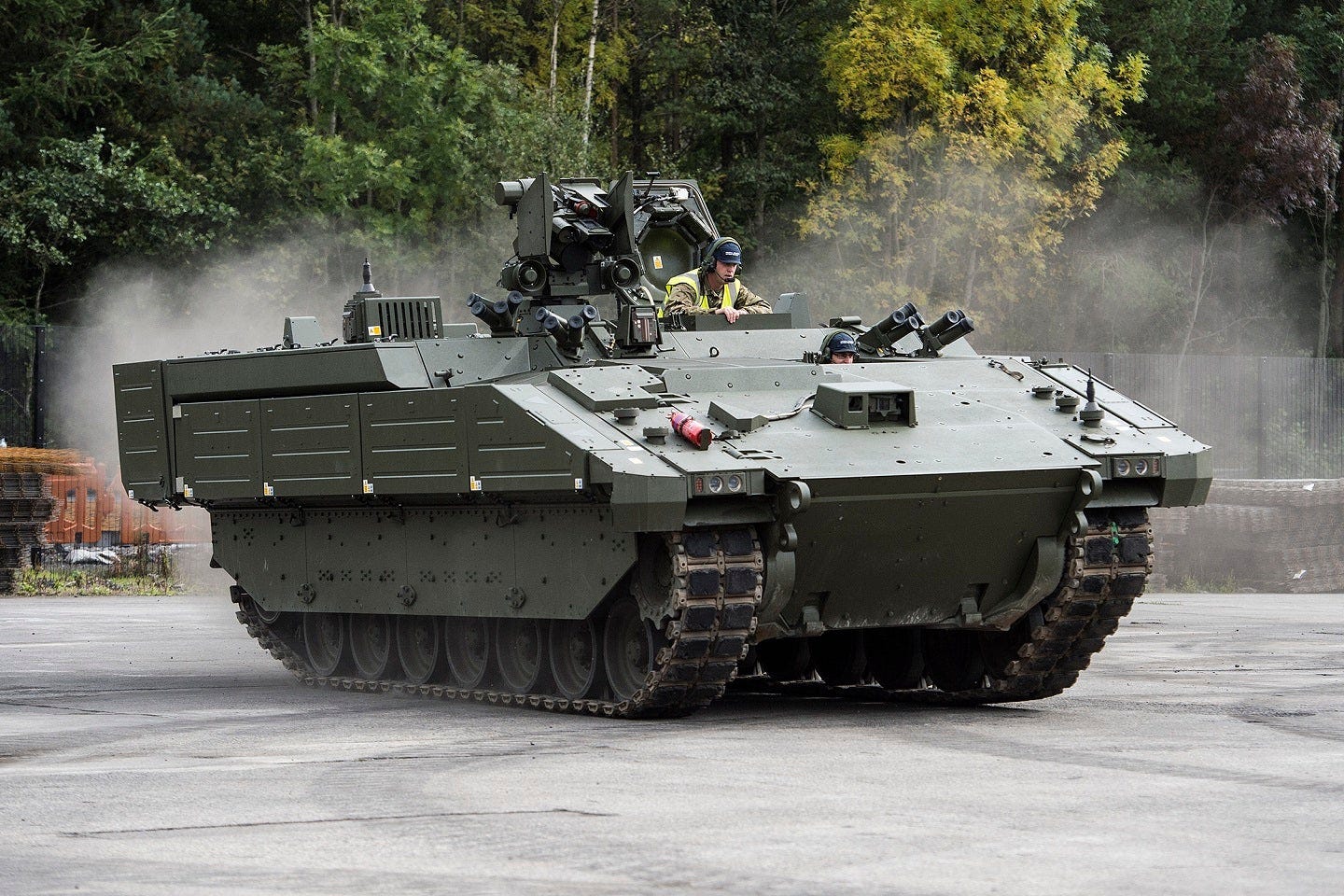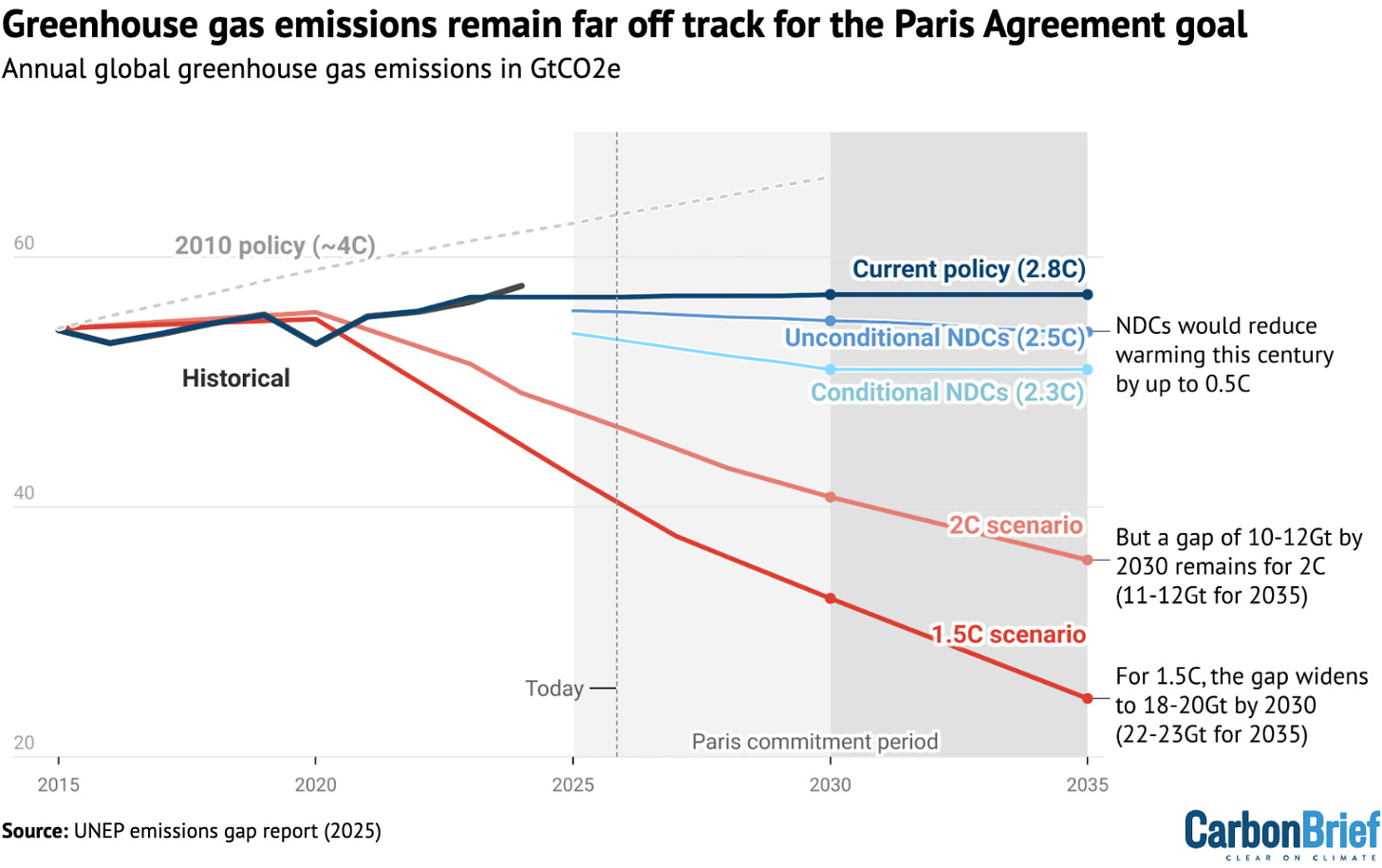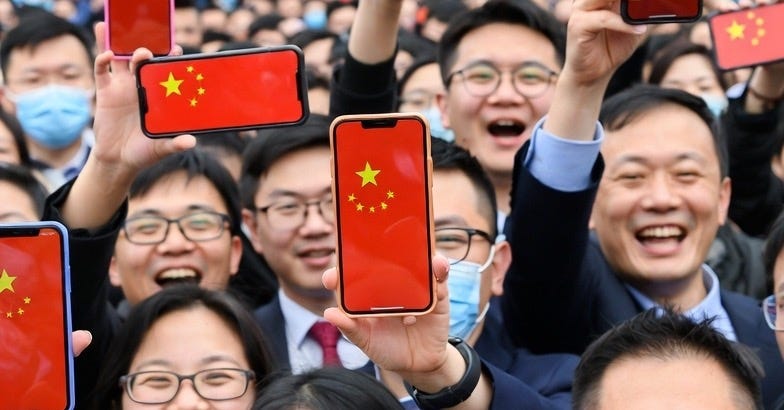10 Things Global News - 6th November 2025
Interesting and important news from around the world
Philippines Declares Emergency After Typhoon Kalmaegi
Fierce Fighting Engulfs Pokrovsk as Russia Pushes North
North Korea Condemns New US Cyber Sanctions
Bulgaria Moves to Seize Russian Oil Refinery
UK Deploys Ajax Armoured Vehicles After Long Delays
EU Weakens 2040 Climate Target After Marathon Talks
UNEP Claims New Plans Barely Narrow Warming Gap
Huang Says China Will Win The AI Race
Tesla Shareholders Vote On Musk’s Trillion-Dollar Package
Sheinbaum Assault Spurs Anti-Harassment Drive
On this day …
On this day in 1956 Soviet forces captured Budapest, crushing Hungary’s brief bid to break free from Moscow’s control. After days of street fighting and a fleeting declaration of neutrality by the Hungarian government, thousands were killed and over 200,000 fled as refugees.
Western powers, distracted by the Suez Crisis, issued only protests while the Red Army re-established a hardline regime. The revolt’s defeat ended hopes of reform within the Eastern Bloc for a generation and exposed the limits of Western resolve.
It remains a reminder that Russian aggression can still prevail when the West chooses distance over engagement.
President Ferdinand Marcos Jr has declared a state of emergency after Typhoon Kalmaegi left at least 140 people dead and 127 missing across the central Philippines — the country’s deadliest natural disaster this year. Floodwaters described as unprecedented swept through Cebu province, destroying homes, stranding thousands and displacing more than half a million people. Officials said the storm affected nearly two million residents, with many evacuated to shelters.
The declaration will allow faster release of emergency funds and measures to prevent hoarding and overpricing. However, the damage has exposed weaknesses in flood control and infrastructure, with local leaders citing years of quarrying and substandard projects.
Meanwhile, Kalmaegi is intensifying as it moves toward Vietnam, where authorities are treating it as an “urgent and dangerous” storm and have begun mass evacuations.
Sources: The Guardian, South China Morning Post
Russia and Ukraine say their forces are locked in intense combat in the eastern city of Pokrovsk, where Moscow claims advances while Kyiv insists its troops are holding the line. The city, once a major transport hub, has become the latest focal point in the battle for the Donbas, with most residents having fled amid relentless shelling.
Russia’s defence ministry said its assault groups were destroying Ukrainian troops in several districts and pushing north, while Ukrainian commanders denied any encirclement and said they were maintaining logistics routes and mounting countermeasures. However, both sides acknowledged fierce conditions and heavy losses.
Moscow sees Pokrovsk as key to securing full control of Donetsk and creating a platform to advance toward Kramatorsk and Sloviansk. Its capture would mark Russia’s biggest territorial gain since Avdiivka’s fall in early 2024.
Sources: Reuters, AAP News
North Korea has denounced new US sanctions targeting cybercrimes that Washington says help finance Pyongyang’s nuclear programme. The US Treasury imposed measures on eight individuals and two firms, alleging a laundering network tied to IT worker fraud and cryptocurrency heists; it estimates state-sponsored hacking has stolen more than $3 billion in mostly digital assets over three years.
Vice Foreign Minister Kim Un Chol said the “present US administration” had clarified a hostile stance and vowed “proper measures” in response. However, the sanctions come as President Donald Trump has expressed interest in reviving talks with Kim Jong Un after negotiations collapsed in 2019; North Korea has not responded to a recent meeting proposal during Trump’s visit to South Korea for APEC.
In contrast, South Korea’s unification ministry described Pyongyang’s reaction as “restrained.”
Sources: Korea Times, Associated Press
Bulgaria is drafting legislation that would allow it to take control of Lukoil’s Burgas oil refinery — the country’s only one — and sell it to a new owner to protect the facility from US sanctions. The move follows Washington’s decision to sanction Russia’s two largest oil companies over the war in Ukraine, prompting uncertainty over Lukoil’s foreign assets.
The proposed law would enable the government to appoint a special manager to oversee the refinery’s sale, stripping Lukoil of any voting rights or appeal. Officials say the measure aims to ensure energy security and prevent potential supply disruptions.
Meanwhile, former prime minister Boyko Borissov said the bill would be submitted immediately, describing it as a logical step given Bulgaria’s dependence on Burgas.
Sources: TVP World, The Independent
The British Army has finally announced the first deployment of Ajax armoured vehicles, eight years behind schedule and at a cost of nearly £10 million each. The programme, launched in 2009, had faced repeated setbacks over noise and vibration issues that more than 300 soldiers with hearing problems and forced testing to halt in 2021.
Defence minister Luke Pollard said the first 50 vehicles had reached initial operating capability and were ready to join NATO forces on the eastern flank. He described Ajax as having “left its troubles behind,” while acknowledging lessons from years of mismanagement. Meanwhile, senior officers defended the project’s relevance despite the dominance of cheap drones in modern warfare, arguing the vehicles provide long-range reconnaissance and endurance beyond that of unmanned systems.
Sources: The Guardian, The Times
EU ministers agreed a weakened 2040 climate package after more than 18 hours of negotiations, keeping the headline aim of a 90% emissions cut versus 1990 while allowing part of the goal to be met via foreign carbon credits.
The compromise also delays elements of policy, reflecting pressure from states warning of costs to industry. However, the split exposed political strains between countries seeking flexibility and those warning of damage to credibility.
To win sceptics, ministers backed a one-year delay to the new carbon market for transport and heating fuels, moving its start to 2028; they also extended free permits for heavy industry and kept low-carbon fuels in road transport. Meanwhile, the bloc set a 2035 target range of 66.25–72.5% and will reassess the 2040 path every two years.
As a result, Europe heads to COP30 with a deal that balances ambition with concessions, but many deem it less robust.
Sources: RFI, Politico Europe
The UN Environment Programme says new national climate plans “barely move the needle”, with the world on track for 2.3–2.5C of warming this century even if pledges to 2035 are fully implemented. Global greenhouse gas emissions reached a record 57.7GtCO2e in 2024, up 2.3% year on year; land-use change was a decisive driver as net LULUCF (Land Use Land Use Change and Forestry) emissions jumped 21%.
UNEP warns the 1.5C limit is very likely to be breached this decade; any overshoot should be “temporary and minimal” to limit damages. By comparison, its gap analysis shows only limited narrowing by 2035.
Meanwhile, a survey of climate experts now expects China’s emissions to peak later than previously forecast, with 2028 the most common estimate, underscoring uncertainty around major-emitter pathways.
Sources: Carbon Brief, Al Jazeera
Nvidia chief executive Jensen Huang said “China is going to win the AI race”, arguing that lower energy costs and looser regulation give Chinese firms an operational edge. He pointed to state-level rules in the US that could create “50 new regulations”, in contrast with Chinese energy subsidies that make data-centre power cheaper. As a result, Huang said Western “cynicism” is holding back deployment.
Meanwhile, the Trump administration has maintained a ban on Nvidia’s most advanced chip sales to China. President Donald Trump said Blackwell-class processors should be reserved for the United States, adding that China could not access “the most advanced”. However, Washington would still allow engagement short of those top-end semiconductors.
The policy dispute comes as Nvidia courts policymakers, underscored by a developer conference in Washington, and as debate intensifies over China’s rapid AI progress.
Sources: FT, Reuters
Tesla shareholders meet in Austin on Thursday to vote on a compensation plan that could grant Elon Musk stock worth up to $1trn over a decade. The award would hinge on demanding operational and financial targets, while also requiring a simple majority of voting shares; Musk can vote his roughly 15% stake.
Supporters argue he is indispensable to Tesla’s future, but major investors have urged a no vote, citing scale and governance concerns.
The proposal could double Musk’s stake to nearly 30%, a level he says is needed to steer projects including self-driving and robotics; he has threatened to walk away if the package fails and has attacked some critics as “corporate terrorists”.
However, advisory firms warn of dilution and some funds oppose the deal. As a result, the outcome turns on whether shareholders prioritise control and vision over cost and board process.
Sources: Associated Press, CNN
Mexico’s president, Claudia Sheinbaum, was groped by a man during a public walk in Mexico City, with an aide intervening after a delayed response from her team. Sheinbaum often forgoes bodyguards; however, the incident revived scrutiny of presidential protection as a result of recent attacks on officials.
Sheinbaum later said she had filed a criminal complaint and that the man had been detained; authorities reported he was drunk. Meanwhile, she pledged to review state laws so street harassment is treated as a crime nationwide and to launch a campaign against it.
Data show that harassment is widespread: nearly half of Mexican women report street harassment, underscoring the scale.
The episode follows the killing of Uruapan’s mayor at a public event, adding to concern about security at open gatherings.
















